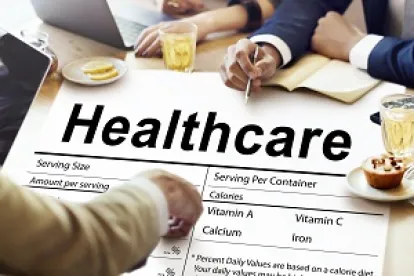SAMHSA's Oversight of Accreditation Bodies for Opioid Treatment Programs (Added July 2018)
According to the Substance Abuse and Mental Health Services Administration (SAMHSA), approximately 2.5 million people have an opioid use disorder. Opioid treatment programs (OTPs) provide Medication-Assisted Treatment (MAT) as one method of combating the opioid epidemic in the United States. SAMHSA has established an oversight system for the treatment of substance use disorders with MAT, including procedures to approve accreditation bodies to evaluate OTPs and ensure SAMHSA's opioid dependency treatment standards are met. The OIG will determine whether SAMHSA's oversight of accreditation bodies is in compliance with Federal requirements. This will include a series of audits and will be informative to SAMHSA’s future oversight and use of MAT.
Review of Post-Operative Services Provided in the Global Surgery Period (Added July 2018)
Section 523 of Medicare Access and CHIP Reauthorization Act of 2015 (MACRA) requires CMS to collect data on post-operative services included in global surgeries. The OIG is required to audit and verify this data. The OIG will review a sample of this data to compare the post-operative services in the medical records to the data collected by CMS. The OIG will use the analysis to determine the accuracy of reported data and to determine whether global surgery fees accurately reflected the actual post-operative services provided.
CMS Oversight of Nursing Facility Staffing Levels (Added August 2018)
Staffing levels in nursing facilities are directly related to residents' quality of care. Nursing facilities that receive Medicaid and Medicare payments are required to provide nursing services 24 hours a day, and staff a registered nurse for at least 8 consecutive hours every day. Centers for Medicare & Medicaid Services (CMS) analyzes staffing patterns and maintains the Nursing Home Compare website. This site allows the public to evaluate the quality of care of nursing homes. The OIG will examine nursing staffing levels in order to evaluate the accuracy of the reported data and to ensure that staffing levels are sufficient to meet desired quality of care metrics.
Potential Abuse and Neglect of Children Receiving Medicaid Benefits (Added August 2018)
Providers are often tasked with treating Medicaid beneficiaries, including children, in cases where abuse or neglect may be present. Each state has its own mandatory reporting laws, all of which vary in requirements, substance, and procedure. In spite of these laws, the OIG has previously analyzed data and concluded that abuse and neglect are being underreported, particularly amongst vulnerable populations (e.g. children and elderly). The OIG will continue these efforts by reviewing diagnoses from providers treating conditions that are potentially related to abuse or neglect. The OIG will then determine the prevalence of Medicaid claims indicating potential abuse or neglect of children receiving Medicaid benefits.
Data Brief: Early Results from the Opioid State Targeted Response Grants (Added October 2018)
SAMHSA will award and oversee $1 billion in Opioid State Targeted Response (Opioid STR) grants. The purpose of these grants is to "address the opioid crisis by increasing access to treatment, reducing unmet treatment need, and reducing opioid overdose related deaths through the provision of prevention, treatment and recovery activities for opioid use disorder." Most of the awards will be for opioid treatment services using clinically appropriate evidence-based practices, including MAT. The OIG will review early results of the Opioid STR grants. The OIG will also analyze States' use of Opioid STR grant funds, including the populations reached and the extent to which the funds were used for MAT.
Other areas of focus of the OIG in July, August, September, and October are as follows:
- Review of payments to providers to determine whether Medicare cards deemed high risk and cards mailed and returned as undeliverable are being used for inappropriate items and services.
- Analysis of whether State agencies complied with Federal and State requirements when making payments to licensed providers under the Child Care and Development Fund program fiscal years 2016 through 2018.




 />i
/>i

